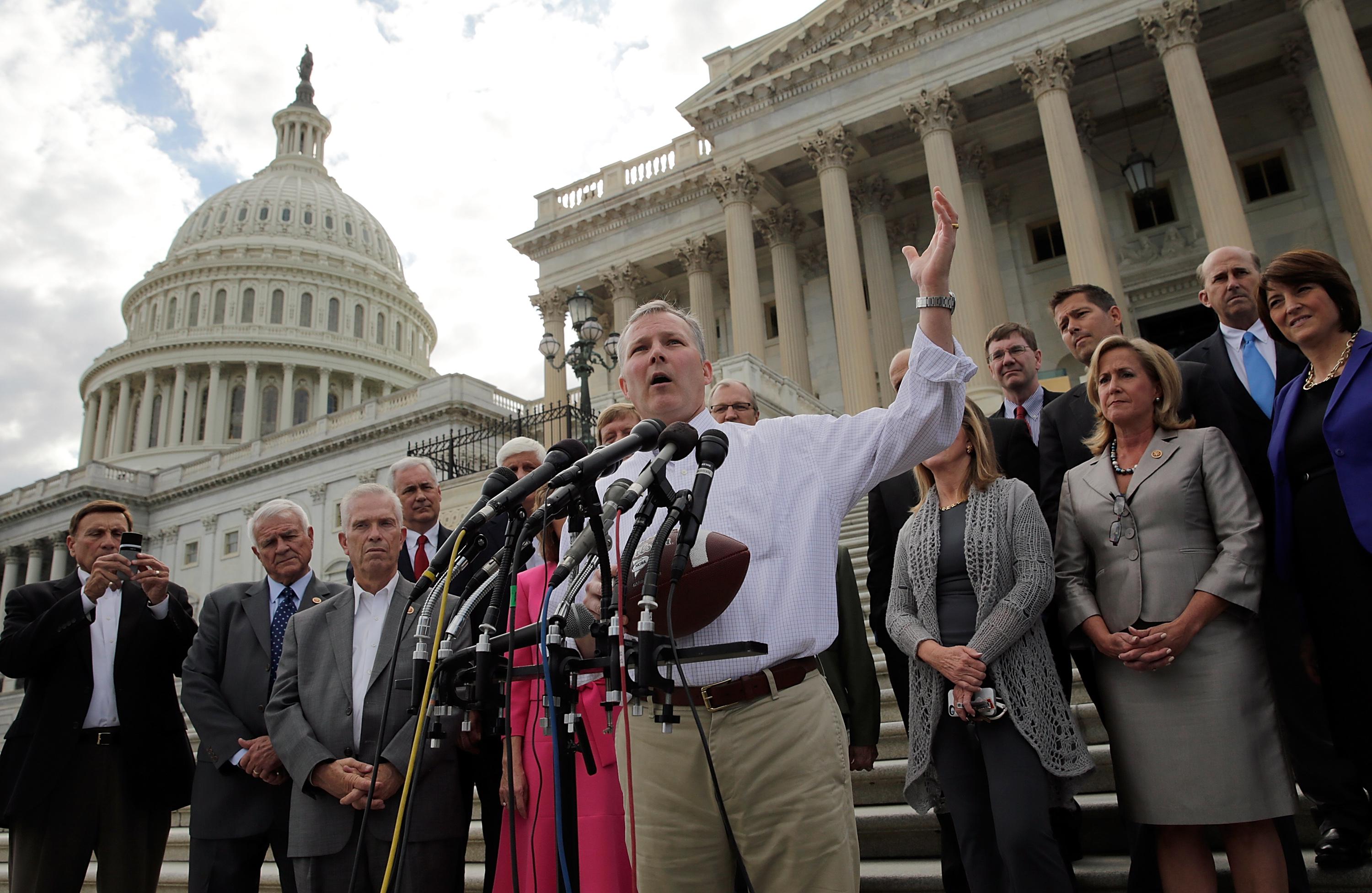Arkansas Rep. Tim Griffin won’t run again for Congress in 2014, citing the “more time with my family” rationale that has helped so many people ease out of politics. “We have decided that now is the time for me to focus intently on my top priority, my family, as Elizabeth and I raise our two young children,” he said in a statement. It had been mere days since he announced a third-quarter fundraising haul that could have scared off opponents, and almost a year since he won a spot on Ways and Means.
The early political obituaries (if that’s the right term for a guy in his mid-40s who could easily run for another office someday) mention that Griffin was a rising star, that he made a silly Twitter mistake when cops locked down the Capitol this month, that he was a U.S. attorney nominee stymied during the 2007 scandal over politicization of appointments, maybe that his district is winnable for Democrats. (Only 55 percent of its voters went for Mitt Romney in 2012. That was the best that Democrats did in Arkansas last year.)
But perhaps Griffin will be remembered as he didn’t want to be—for the 2004 “voter caging” story. In 2004 the Bush-Cheney campaign and RNC sent mail to voters’ addresses to check whether those addresses were current. If the mail bounced back, the names were “caged,” and the party had reason to challenge the ballots of these voters if they showed up. In 2004, while at the RNC, Griffin received spreadsheets of “caged voters”—a fact that came up during his confirmation process when he was seeking to become a U.S. attorney. Greg Palast, the muckraking journalist who had originally reported the story, also argued that the voters being targeted were disproportinately nonwhite. That sort of discrimination would have been illegal.
In 2007, with Democrats newly in charge in Congress, this was enough to destroy the Griffin nomination. The nominee tearfully insisted that he’d been railroaded by “one guy, whose name I won’t mention” (Palast). Two and a half years later, Griffin spotted a fantastic opportunity in the Tea Party wave and the retirements of Democratic incumbents in Arkansas, and he came back in a way that nullified the old, bad associations. Fact-checkers in the state basically decided that the “caging” story was too thin to be used against Griffin.
